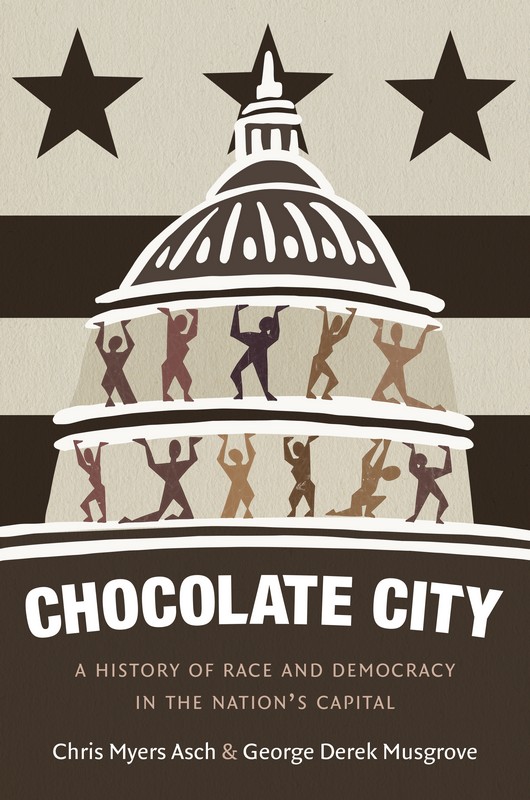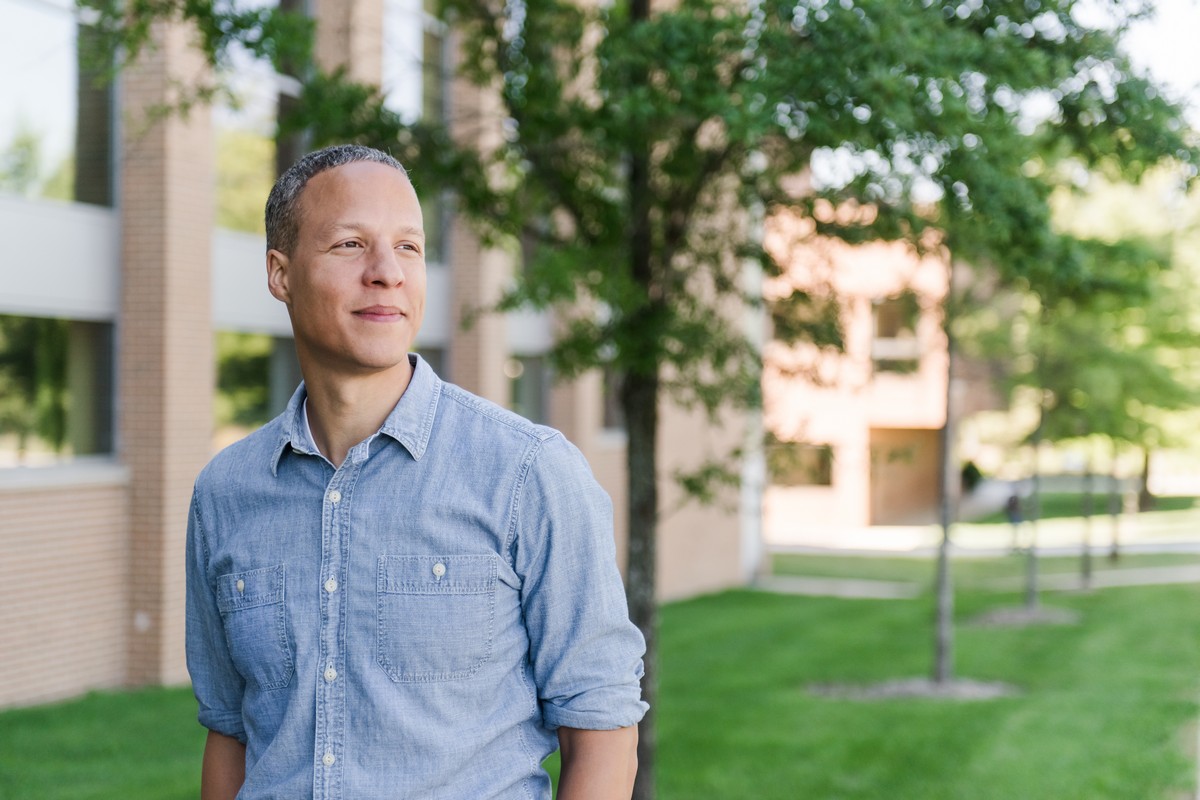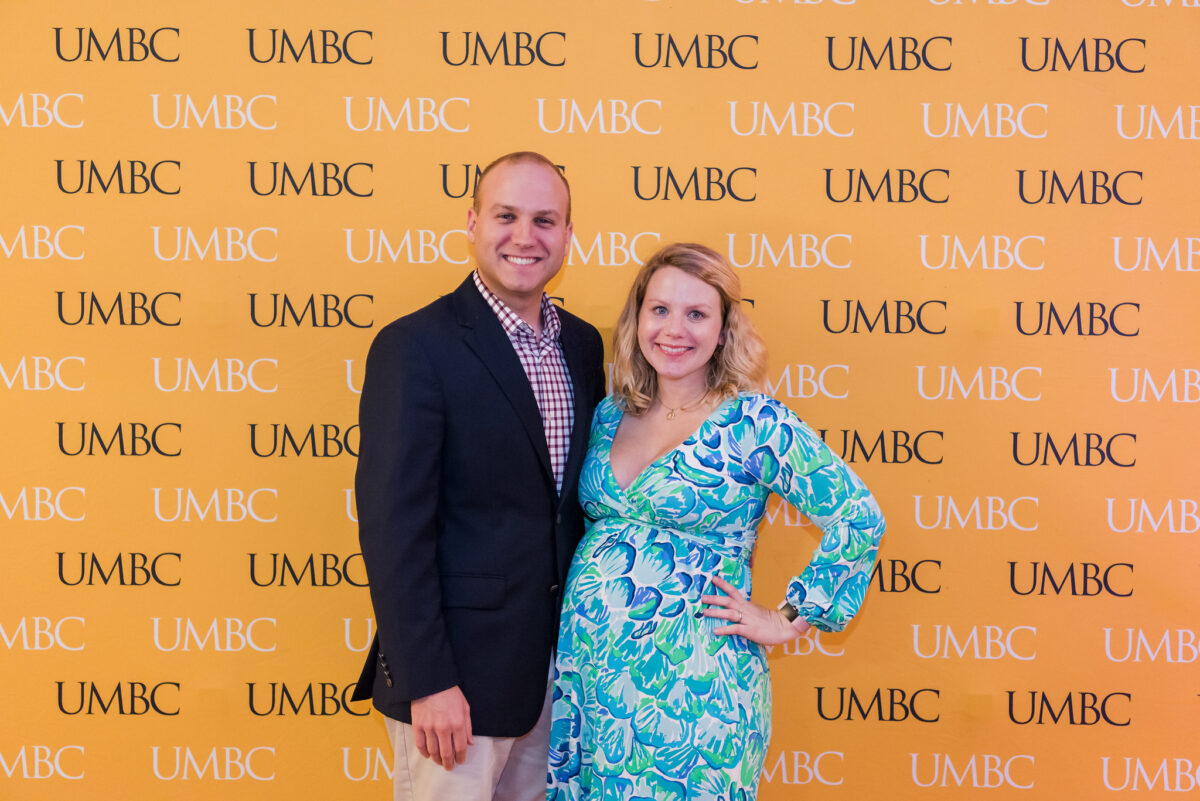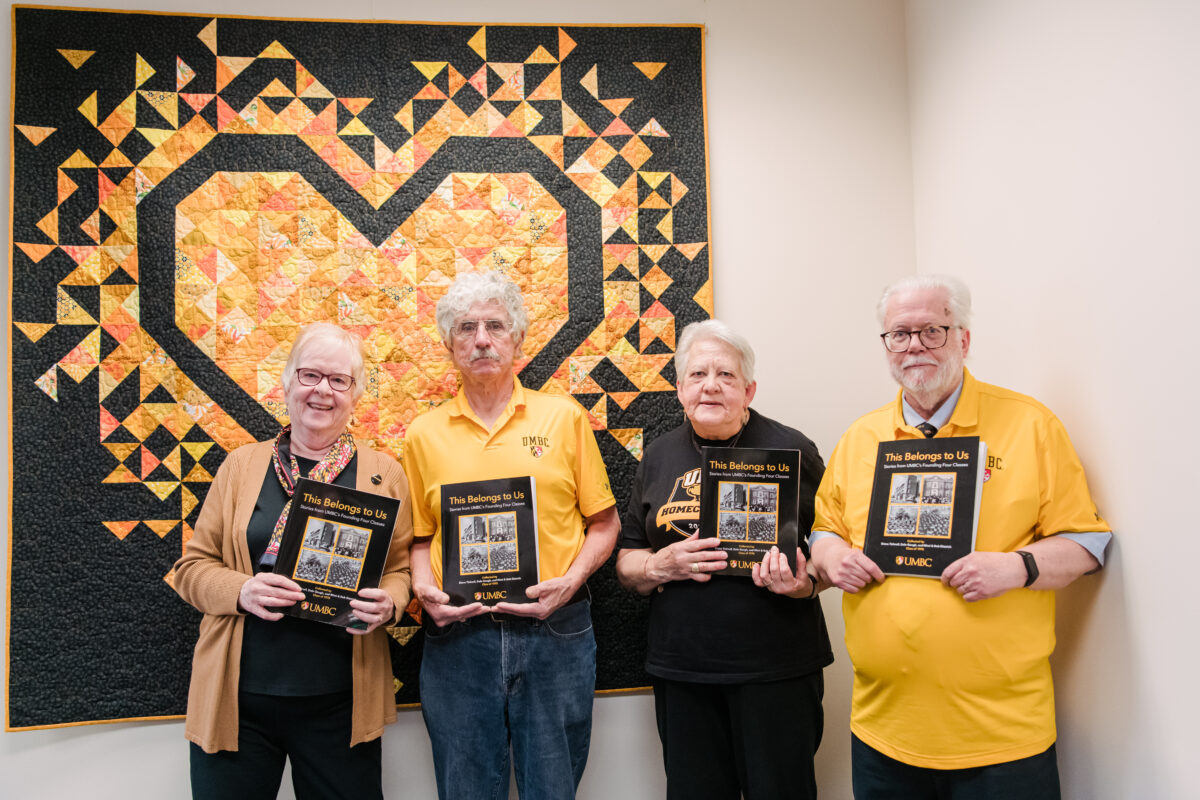Every so often, we chat with an alum about what they do now and how they got there. Today’s guest, George Derek Musgrove ’97, history, is an alum-turned-faculty member whose latest book, Chocolate City: A History of Race and Democracy in the Nation’s Capital, explores Washington, D.C.’s relationship to race over the last four centuries. We caught up with him ahead of the book’s November public launch.
NAME: George Derek Musgrove
MAJOR: History
GRAD YEAR: 1997
CURRENT JOB TITLE: Associate Professor of History, UMBC
What made you decide to study post-WWII U.S. history, and what specifically led you to the subject matter for Chocolate City?
I have always approached history as a way to inform activism, and I have always looked to my parents’ generation for those lessons. My father was involved in Black Power activism and my mother was deeply influenced by the Black Arts movement. That naturally led me to pursue post-1945 history. I wanted to understand what political and cultural struggles had shaped the world in which I lived and how. I also wanted to understand what worked and what did not in previous struggles, specifically struggles for African American equality.
I came to the topic of D.C. history quite by chance. In 2009, when I was still teaching at [the University of the District of Columbia], my African American history course under-enrolled. As per an unfortunate university policy, the class was cancelled and I was assigned another course on the spot: History of the District of Columbia. A Baltimore native with no background in D.C. history, I stumbled through the ensuing semester, hurriedly reading any book on the District I could get my hands on just moments before heading to class.
The following year, I shared this story with my colleague, Chris Myers Asch, a D.C. native who had returned to his hometown and taken a position at UDC. Together we tackled the D.C. History course, and we jointly rewrote the syllabus. After teaching the course, both of us mused that “someone” should write a good survey text on race and democracy that captured students’ attention and addressed the themes we emphasized in the course. Enterprising historian that he is, Chris thought that that “someone” should be us. He wrote a proposal in 2011 and suggested that I join him in producing just such a book. I did.

Chocolate City isn’t your first book…do you have any other projects that we should look out for?
My other book projects focus on black politics on the post civil rights period. My first book, Rumor, Repression, and Racial Politics: How the Harassment of Black Elected Officials Shaped Post-Civil Rights America, explores black elected officials’ allegations of state repression between 1965 and 1995. I hoped to understand African American leadership’s evolving relationship to the government in the years after passage of the Voting Rights Act. I am currently working on an exploration of black power politics and culture during the years that I came to political maturity, tentatively titled “We must take to the streets again”: The Black Power Resurgence 1983-97. My generation was fascinated by our parents’ civil rights and black power exploits, and we tried to bring back many of their ideas and activist projects in the 1980s and ’90s as a way to push back against the Reagan Revolution and the urban crisis.
Tell me a little bit about your post-UMBC career path, and how it eventually led you back to UMBC.
After graduation I headed to NYU to pursue a Ph.D. in history. I was lucky enough to secure a full scholarship for my graduate study through the efforts of several members of the UMBC administration, principally Earnestine Baker, who had connections with the NYU Medical School where she had placed a number of Meyerhoff Scholars. After leaving NYU, I secured a postdoc at Trinity College in Hartford, Connecticut, where I taught very well-to-do students from the New England private school circuit. The experienced convinced me that I would prefer to teach working- and middle-class students, so I headed to the University of the District of Columbia. I was happy teaching the predominantly working-class student population at UDC, but […] having come up with the example of Dr. Hrabowski as what a college president should be…I made an effort to work for that administration by returning to UMBC. When a job opened in the history department in 2012, I jumped at the chance.
What’s the one piece of advice you’d give to an incoming UMBC student, and why?
I will give them the same advice that was given me: take control of your educational experience and mold it into something unique that suits your particular needs and aspirations. Students have a choice: they can listlessly move through a proscribed curriculum like they did in high school, or they can figure out what training they need for their chosen career and secure it. With the support of advisors like President Hrabowski and historian Rebecca Boehling, I chose the latter. I knew I wanted to be a historian, so I actively searched for the classes that would help me to understand the profession and my place in it; secured internships that gave me hands on experience in the field; and studied abroad to give myself perspective on the peculiarities of my country and chosen subject. This directed approach to my major made me an attractive candidate for a Ph.D. program at NYU. It set me on the path to becoming a historian.
Chocolate City will launch publicly with a lecture and book signing at the National Museum of African American History and Culture on Thursday, November 2. Advance registration required; click here for more information.
Got exciting news to share with us? Send in a Class Note for the next print edition of the magazine!




